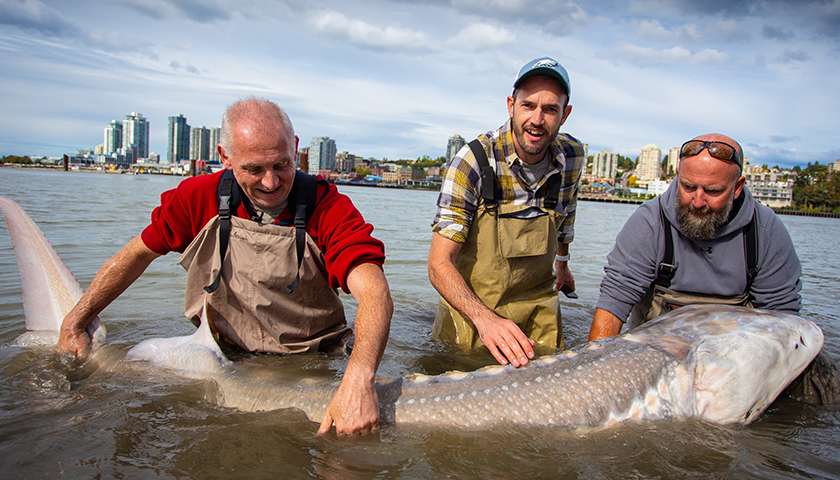It took three biologists to haul a 240-pound (109 kilograms) fish out of the Detroit River in Michigan last month. The nearly 7-foot-long (2.1 meters) “monster’ sturgeon,” caught and released by the Alpena Fish and Wildlife Conservation Office, could be more than 100 years old. It’s a mightily impressive catch for sure, but is it the biggest freshwater fish in the world?
The Detroit River fish is a lake sturgeon (Acipenser fulvescens), and while it is believed to be one of the largest ever caught in the U.S., there are much bigger fish swimming in rivers around the world. According to the U.S. Geological Survey, the planet’s largest freshwater fish is the beluga sturgeon (Huso huso), living between Europe and Asia in the Black, Azov and Caspian seas, and the rivers feeding them.
Beluga sturgeon can reach a maximum length of more than 26 feet (8 m), or about four times as long as a king-size mattress, and weigh up to 2.2 tons (2,000 kg, or 2 metric tons), according to the Pan-European Action Plan for Sturgeons, prepared by the World Sturgeon Conservation Society and World Wildlife Fund. When they grow up, belugas are at the top of the food chain, eating fish such as roach and carp, aquatic birds and even seals, according to the International Union for Conservation of Nature (IUCN).
Read More
